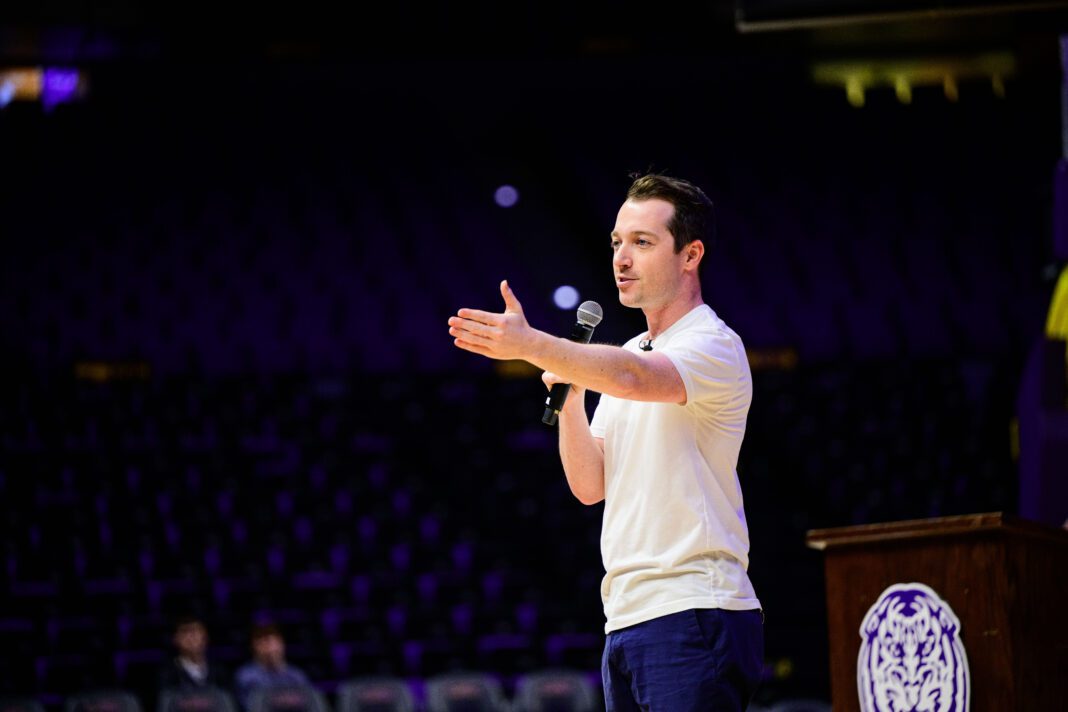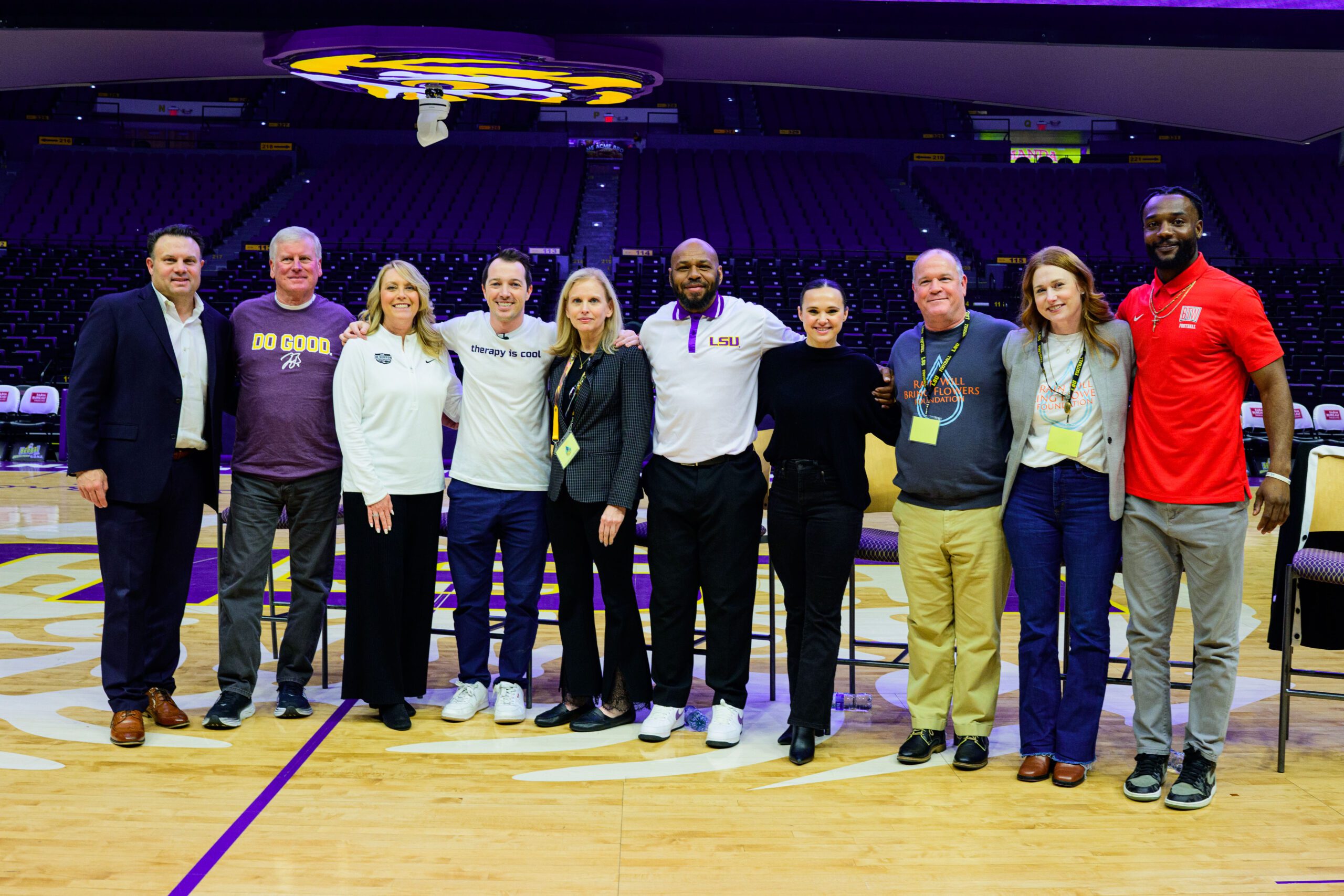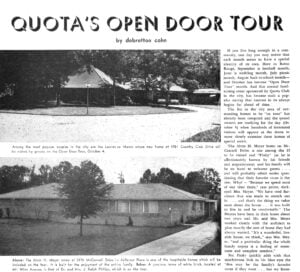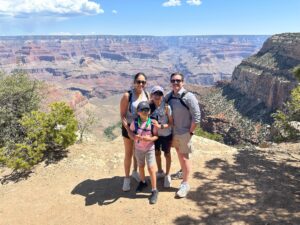
Brandon Saho is working to destigmatize conversations around mental health, one interview at a time
Former WBRZ sports reporter Brandon Saho was 28 when he checked himself into a mental health hospital. After struggling silently throughout his teens and 20s, he knew he needed to make a change. This step towards healing was also the start of a new passion for helping others navigate their own mental wellness.
Motivated to destigmatize conversations around mental health, Saho knew he would need to make the discussion welcoming and even fun. That’s no small feat for such a sensitive and sometimes unapproachable topic. But nothing sells like a celebrity, he thought. So, combining his experience as a journalist with his passion for mental health awareness, he started the Mental Game Podcast in November of 2022. Episodes feature interviews with everyone from athletes to musicians to celebrities, each of whom talks openly about their emotional struggles.
At the beginning of this year, Saho took his podcast from online to in-person, embarking on the Mental Game Tour. For 30 days, he traveled across the country to give presentations to kids of all ages about mental health awareness. “It was just a crazy idea at first, but I’m a person who will pursue those crazy dreams, and I’m so glad that I did,” Saho says of the tour while driving through a snowstorm en route to Kentucky for another presentation.
His “crazy idea” has now connected him with countless youths on a topic that has been stigmatized for generations. The goal of the tour, he says, is genuinely connecting with people to help them talk about mental health in a way that they possibly never have before.
“Today, I talked to four schools in four hours,” he explains. “It’s important that kids hear this message because it’s something I never heard in school, and neither did their parents. If we can start having the uncomfortable conversations, we can break the stigma and start saving lives.”
Thanks to collaboration with Jordan Tabor and the Rain Will Bring Flowers Foundation, Saho’s Mental Game Tour stop in Baton Rouge was unlike any other. The Tabor family and the organization they established in memory of their late son, Owen Tabor, are dedicated to advancing suicide awareness and prevention. The foundation has already made strides toward its goal since its launch less than a year ago.
“I have to give Jordan credit because he pulled everything together for the event at LSU,” Saho says of the Planting Seeds of Hope event they hosted at the Pete Maravich Center in late January. In an effort to reach as many young people as possible, Tabor coordinated with school officials to clear extracurricular schedules so that every student could attend. He also worked to secure partnerships with LSU Athletics, the Joe Burrow Foundation, Our Lady of the Lake, Raising Cane’s and enlisted over 25 community organizations to provide resources for attendees.

Jimmy & Robin Burrow, Brandon Saho, Melissa Watson, Kevin Faulk, Ashleigh Gnat, Jordan & Lisa Tabor, and Delvin Breaux Sr.
“It’s honestly unbelievable that we were able to get everything together in such a short time, but this is just the beginning,” Tabor says, noting that the Planting Seeds of Hope will become an annual event thanks to commitments from LSU Athletics and Our Lady of the Lake.
That evening, Saho was joined by a panel of guest speakers, including three former LSU athletes who shared their personal stories of struggle and hope. Students heard from athletes Delvin Breaux Sr., Kevin Faulk and Ashleigh Gnat, Our Lady of the Lake psychiatrist Melissa Watson, and the parents of Joe Burrow.
“We have to find a unique way to discuss mental health with our youth so that they know they aren’t alone,” Tabor says. “Seeing inspirational athletes who have been in their shoes and who have overcome challenges in their lives shows them that they can also persevere.”
The Mental Game Tour wrapped back in February with a final stop in Saho’s home state of Ohio. But his mission continues with the Mental Game Podcast and the people he has inspired to action along the way.
“We have to start talking about this more,” Saho explains, “It sounds so easy, but it’s also very hard for some people. I truly believe talking saves lives, whether it’s with your mom, best friend or therapist. Say something.”









